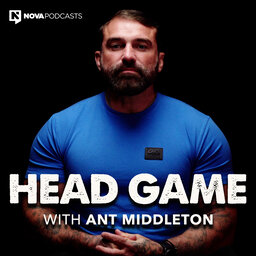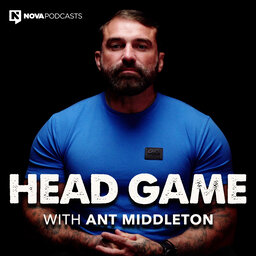Best of Head Game: Working on the Front Line
Our frontline workers are often unsung heroes, saving lives and keeping us safe with little to no recognition for their bravery or the toll it takes. In this special episode, Ant looks back on interview with some inspirational emergency services workers who have seen and experienced things many of us could only imagine: former police officer Allan Sparkes, former Commissioner of Fire and Rescue New South Wales Greg Mullins and paramedic Sally Gould.
LINKS
- Listen to Ant's full episode with ex-cop Allan Sparkes
- Follow Allan Sparkes on Instagram @allansparkes_cv
- Find out more about Allan and his book, The Cost of Bravery, at allansparkes.com
- Check out Ant's full chat with firefighter Greg Mullins
- More on Greg Mullins' book 'Firestorm' here
- Sally Gould's book Frog: The Secret Diaries of a Paramedic is out now
- Follow Ant on Instagram, X, and Facebook
- Learn more about Ant on his website antmiddleton.com
- Follow Nova Podcasts on Instagram for videos from the podcast and behind the scenes content – @novapodcastsofficial.
CREDITS
Host: Ant Middleton
Editor: Adrian Walton
Executive Producer: Anna Henvest
Managing Producer: Elle Beattie
Nova Entertainment acknowledges the traditional custodians of the land on which we recorded this podcast, the Gadigal People of the Eora Nation. We pay our respect to Elders past and present.
 Head Game
Head Game


